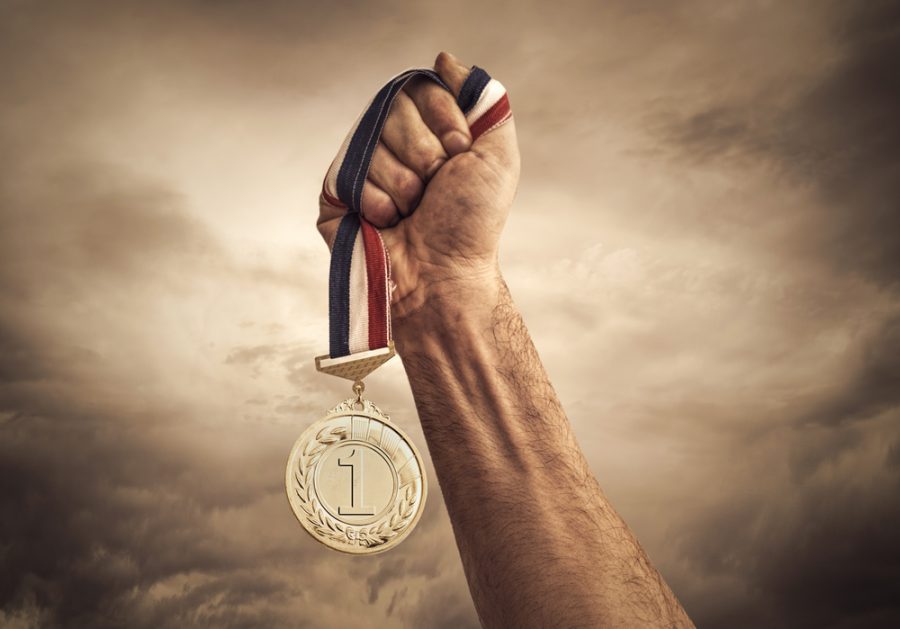Opinion: Athletic Talent, Born or Made?
May 22, 2020
I won’t lie; I’m a pretty poor athlete. I joined AHS’ Girls Water Polo team sophomore year, and was one of the worst players on the team, frustrating my coaches, my teammates, and myself. I fared much better my second year on the team, but I could see a clear difference between myself and standout players my age or younger. Yes, I could have practiced more, but I wouldn’t have had a chance of catching up to the best players. The same goes for swimming, though I was much better at it than water polo. There is a visible difference between innately talented athletes and the less blessed.
You might have heard of the “10,000 Rule,” the idea that 10,000 hours of practice are necessary to become a master at any field. This principle was popularized in 2008 by the book Outliers by Malcolm Gladwell. It has since been debunked by many studies, such as one performed at Case Western Reserve University by Brooke Macnamara and Megha Maitra that showed “the majority of the best violinists had accumulated less practice alone than the average amount of the good violinists.”
So practice can’t overcome natural talent. It’s not a huge revelation. Just look at some of the greatest athletes of our time. Swimmer Michael Phelps has a disproportionate wingspan and double-jointed ankles, giving him better pulling and kicking power, as well as less drag from his legs. Eero Mäntyranta, who won the cross-country skiing competition at the 1964 Olympics by a historical margin, had a genetic mutation resulting in his body producing fifty percent more oxygen-carrying red blood cells than the average person. What Lance Armstrong used doping to achieve, Mäntyranta possessed naturally. Generally, athletes at the top of their craft have specific mutations (like lacking myostatin, a protein that limits muscle growth), or a combination of natural characteristics, from height to reflexes to coordination, that contribute to their success.
However, this isn’t something to lose hope over. Though natural talent may carry some beyond the rest, practice is the foundation of athletic success. Phelps isn’t the record holder for most Olympic medals won by any athlete thanks to natural aptitude alone – he swims nearly 50 miles a week, and trains five to six hours for six days a week. When you practice, you increase the consistency of your performance, improve your fine motor skills, increase your stamina, hone your discipline, and so much more. Plus, natural talent is nothing when a person doesn’t practice enough to utilize it. Even without genetic advantages, with enough resilience and motivation, you may be able to go pro and pursue the athletic career of your dreams.
The good thing about knowing this is becoming more understanding of your own limitations. You don’t have to beat yourself up because you’ll can’t run faster than your team’s best runner, or score more goals than the kid who has been MVP their entire life. You might not be the best, but that doesn’t mean you’re useless. Sometimes it’s better to practice in moderation than run yourself ragged playing sports for hours on end. We can all do better when we hold ourselves to a realistic standard.
Photo Courtesy of WOMENSRUNNING.COM

